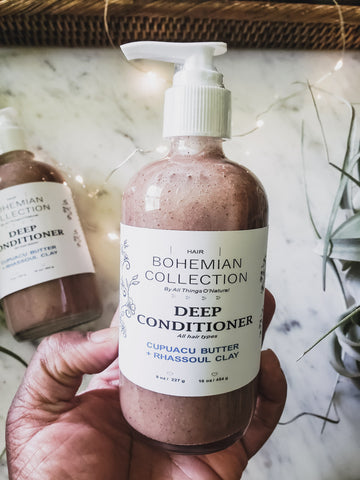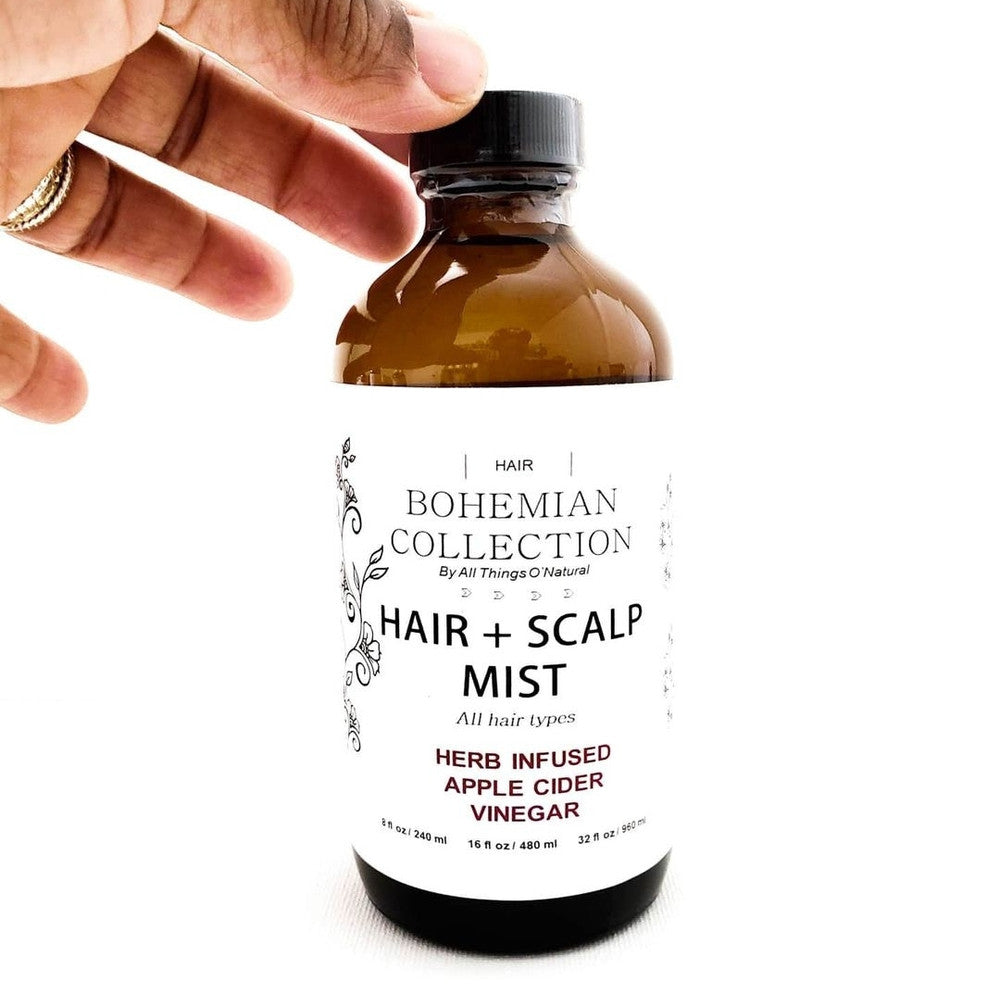By Dominique Harris
on April 09, 2018
With 2 comments
Last week, I was enjoying some needed down time and came across one of my favorite Insta Brands and home tour websites, Design*Sponge . Design*Sponge shares amazing home tours and features from artists to chefs to many different genres of creatives. What I love most about Design*Sponge is that it consciously strives to continuously be inclusive of people of color, sexual orientation and various social demographics not only in their home tours, but also the various genres of creatives. I was reading a particular article which sparked my fancy asking the question 'Can You Support Indie Brands and Box Stores?' more specifically, 'can we ethically support handmade/independent work and big box stores at the same time? Check out the full article HERE. This article sparked my interest because I am a shopper who support both Big Box and Small Handmade Indie brands. The article addressed many of the concerns expressed when shopping Indie vs shopping big box, tackling issues such as: cost, accessibility, ethics, quality and quantity. It was great reading the comments posted after enjoying the article, as the concerns were equal parts cost + accessibility to ethics + quality..some really great points of view and overall good stuff!
OK..SO FOLLOW ME INTO THE MATRIX A BIT
After reading the article and comments, I engaged in a conversation with Grace Bonny, creator and founder of Design*Sponge, proposing an additional point of view that has been a major and ongoing concern from a different perspective that was not covered in the article nor comments. I expressed that when it comes to Indie brands as well as Big Box stores, the lack of diversity and the prevalence of exclusivity are major concerns in who these brands choose as their target demographic and who they choose to market to, as well as who they display via their websites and their social media sites. This, in turn, influences who people of color choose to support with their dollars. Also, since the popularity of social media, particularly Facebook and Instagram, we see this lack of diversity pertaining to the accounts they choose to 'regram' or 'repost' via their social media pages. What we notice, particularly as people of color, is that many of the brands that we love to support and even more when they are small Indie brands, is that the focus is very exclusive to a certain demographic, particularly a certain racial demographic. In this article, I want to address how implicit biases and how our exploitative economic system play roles in how brands choose how they market and to whom they chose to market to and how those choices influence how buyers of color choose to show support. I will also address how implicit biases and systemic racism affect how we as consumers are affected. First, let me begin by expressing that this article will address issues of race as well as how race plays a major role in how we view social demographics and how they both play a role in how we choose to market and express inclusitivity. These are important topics that my husband and I speak about in intimate settings among our diverse group of friends and that diversity helps to bridge the gap of understanding more than one point of view. It helps to educate as well as learn, to share and embrace and most importantly, bring awareness to an issue that many times is overlooked or simply not even thought about. Hold on tight, there are layers to this madness!
IS IT REALLY ABOUT RACE?
Unfortunately, as much as we grow weary of thinking about it, race in the US is closely integrated within our economic system, woven into the fabric of the foundation. Because it is so woven into our cultural society, it can often go unnoticed, ignored or denied by non people of color. Though race is pretty much something that was created as a tool used to separate and create an unbalanced hierarchy, it became a living energy throughout the years to justify a racially exploitative economic system. With this, created an existence of implicit biases that have been, throughout the years, weaved into the fabric of our thoughts, our ideas, who we choose to associate with and influencing who we view as elite, middle class and poor, with people of color, particularly blacks in America due to many many systems that were consciously put into place which created an exclusion of many many people of color from the opportunity of progressing economically, being at the bottom of that economic pool. Check out some great articles HERE HERE and HERE regarding the wealth gap in America that was created and exist even in today's society and how this intentionally targeted economic system play a role in how we live in this society, circling back to how we view others, consciously or subconsciously, in this society.
WHAT IS IMPLICIT BIAS AND HOW DOES IT PLAY A ROLE IN US ECONOMICS?
Implicit bias refers to the attitudes or stereotypes that affect our understanding, actions and decisions in an 'unconscious' manner. Implicit bias is different from explicit bias, which is bias we admit to. Circling back to how implicit bias play a role in how and to whom we choose to market, people of color, particularly, black and brown people in America, have not and currently are not associated with economic growth or empowerment, save for a top few that most people can name. And, let's be honest, if we can name a few, then that in itself shows a grossly uneven playing field. These biases that have been built up in our subconscious throughout our lives, affect our 'lived' experiences and how we deal with others who are different from us and play a role in how they are viewed, which ultimately play a role in how we choose to market our business and to who. A great podcast on understanding our implicit bias can be enjoyed HERE , (highly recommended). Because implicit bias play such a major role in hiring decisions, medical care and business decisions, it can also can play a role in our everyday lives. It can play a role in the neighborhoods we choose to live in, the establishments we choose to patronize, the shows we watch and how we target and market to chosen consumers.
HOW DOES THIS BIAS PLAY A ROLE IN HOW WE VIEW, INTERACT AND MARKET TO CONSUMERS
The problem with implicit bias is that it can create bad feelings about self, let's be honest, no one wants to feel bad about themselves. Because America is still struggling with reversing the legacy of institutional racism (societal patterns that impose impressive or otherwise negative conditions on identifiable groups on the basis of race or ethnicity) an institution that has left many communities segregated even today, it has aided in creating the pool from which we form relationships and societal circles. What happens, then, is that the backwards thinking, what we may think is normal is really cultural pressure that pushes you into biases, implicit and explicit. This in turn, affects how businesses, large, small and micro, choose to market and to whom they choose to market to, which reflects on their websites and social media pages. I witness this a lot in the wellness, green beauty, travel, fashion and interior world. It has been such an issue that brands such as REVOLVE came under heavy scrutiny fire and design focused magazines such as DOMINO was inspired to feature articles regarding diversity and inclusitivity.
SO..WHY DOES WHO WE CHOOSE TO MARKET TO MATTER?
Well, taking a step back and digesting the information that I've shared above, how businesses choose to market and to whom play a part in the system of racism and implicit bias. It helps to debunk stereotypes when we consciously interact, work with and have conversations with people who look different from ourselves.
IN MY OWN BUSINESS HERE'S WHAT I SEE AND EXPERIENCE..
Being a handcrafter and small business owner, myself, for the past 7 years I see a lack of inclusitivity in the 'Green Beauty' industry, which is the industry that my brand would be a category of, in terms of featuring people of color in marketing and featured on social media for the brands.This lack of inclusiveness can lead people of color, people like me, who would have thought of supporting certain brands with feelings that those brands do not want potential buyers who look like me to view nor buy their products.On the flip side of business, I also deal with the inaccurate assumptions that because the business that I own and products that my company handcraft are created ONLY for people of color. So, I get to see both sharp ends of the swords.
SO..HOW CAN WE RECOGNIZE OUR BIASES AND HOW CAN WE BEGIN TO OVERCOME THEM?
Bottom line, everyone has 'lived' experiences and everyone's experiences are different and valid. When people of color voice their grievances about feeling excluded and their dollars not valued, listen. Those grievances are just as valid as when women voice their feelings about feeling excluded and not appreciated or deemed worthy or equal in a world dominated mostly by men. We all wish to see ourselves reflected when shopping or investing in brands that we find value, this is no different for people of color. Inclusitivity and the recognition that diversity exclusion exists is a major step in recognizing how implicit bias play a role in our society. Recognizing that racism is much deeper than the outward explicit nature of white sheet covered men and women spewing hate. It's much deeper than Neo Nazis marching aggressively in attempts to intimidate through terror and fear. Again, it's a system that affects many things from where and how we live, who we associate or do not associate with, who we value and who we don't, where we send our kids to school, where those schools are located and how they are funded, how institutions fund loans and to whom and how this plays a major role in wealth building, who companies choose to hire and who they do not, how we choose to market our products and to whom and right down to social media, who we choose to follow and who we do not.
Think about these things here and ask honest questions of yourself:
When you think about where you live, where you shop, where your children attend school, events you attend, are you mindful of diversity? These things can appear so normal and so innocent, however, if people only attend or are only surrounded by people who look just like them, how are relationships formed with anyone who might be different? This makes me think about another conversation Grace and I were having regarding racism and implicit bias and I mentioned that much of the issue is that how can we expect non people of color to relate to our issues when they don't even associate (whether consciously or unconsciously) with people who look different from themselves. This is why diversity is important.
And even deeper, an important question to ask is, though we shouldn't quite label all things as 'racist' the question we do want to ask is, how do I make sure that I'm not subconsciously supporting systemic racism or harboring implicit biases? Here are some questions you can begin to ask yourself:
1. If you live in the US and have rarely or never been around people of color, how are you truly viewing people of color? How do you empathize with their 'lived' experiences? What are your initial thoughts of people of color and How do you form those thoughts, based on what circumstances? Are your thoughts and feelings formed based on images presented in media?
2. As a brand owner or business, do you make conscious efforts to hire people other than those who look like you? What does your staff look like?
3. Have you built personal relationships, beyond a 'hi' or 'bye' with a person of color?
4. When meeting or associating with people of color, do you use urban slang terms in hopes of fitting in or relating with the assumption that all people of color speak this way?
5. When you see a brand or business owned by a person of color, do you automatically assume the product or service are ONLY for people of color? Do you question the excellence more? The quality of the product or service more?
6. Do you automatically exclude certain neighborhoods as places you might live or send your kids to school? What do those neighborhoods look like? Those schools?
7. When you have a negative experience with a person of color do you automatically lump all persons of color in the same category, making them a monolith in your mind?
8. When you think of success and wealth, what type of people do you automatically associate with wealth and success? What aided you in forming these thoughts?
9. When a person of color enters a restaurant or event, do you automatically stare at them without realizing how that may create feelings of discomfort?
10. When you browse the website or social media page of a brand or business, do you recognize if they have an even presence of diversity? If no, why? If yes, what are the thoughts that run through your mind?
11. As a brand owner, do you consciously display diversity on your page? Do you regram/repost social media pages of people of color who have supported your business? If no, why? Do you question whether reposting a page from a customer who happens to be a person of color and how that will affect your following or business or brand image?
12.If you were to browse your social media following, what do you see? Do you follow or support pages owned by people of color? If no, why? If yes, do you actively engage?
13. If you do have a conversation with a person of color who may be expressing their concerns about discrimination or racism, do you truly listen without feeling the need to correct or offer advice or do you simply dismiss their concerns?
14. Do you discuss race with your children? If not, why? If not, here is a great article on the importance of discussing race with your children. And if you wish to know how to begin talking to your children about race, check out this article HERE. Do you include books, toys and shows that show diversity in your home with your children? Are your kids exposed to persons of color in fields other than nannies, housekeepers, lawn care? Breaking issues of a broken system begins at home and begins early.
15.When speaking with your friends or perhaps a person of color, do you make mention that you, 'don't see race' or 'my best friend is black, Hispanic, Asian, Native American'?
16. Do you become defensive when asked about racism and make it more personal? If so, why? Remember, systemic racism is more than about an individual and personal feelings, bottom line, it's more than just about you.
TIP: When asked questions by Whites on the detriments and intricacies of racism and how it affects day to day life for POC (People of Color), I love to recommend the audio book by Debby Irving "Waking Up White: And Finding Myself in the Story of Race". The author does a wonderful job narrating the book and truly helping for Whites to question their own biases and question their complicity into a racist system. I highly highly recommend this book and even further, after reading, discussing with your friends, family, definitely children and/or colleagues. This book will disrupt comfort zones, provoke some seriously deep thought and attack defensiveness.
So, I know that was pretty lengthy, but hopefully it will help spark awareness as to how our own thoughts, choices and actions can support a system that outwardly we may not agree with. I'm a huge 'why' person, so I'm always striving to get to the bottom of the 'why's' of how we think, act and react or respond. My belief is that in order to even begin the process of healing, one must have those hard truthful conversations with self and then with others. We may not necessarily be able to change society, but we can change our outlook and how we choose to live within this society, one thought, choice, conversation and action at a time.
Further reading..Important books that will help further understand the setbacks suffered and how those setbacks have affected much of the current economic hardships faced today by Black Americans.
The New Jim Crow by Michelle Alexander
The Color of Compromise by Jemar Tisby
Waking Up White by Debby Irving
A People's History of the United States by Howard Zin














Hi. I’m here to listen and learn, thanks so much for sharing this.
Excellent article, I love the questions at the end,and I will be sharing this with as many people as I can.